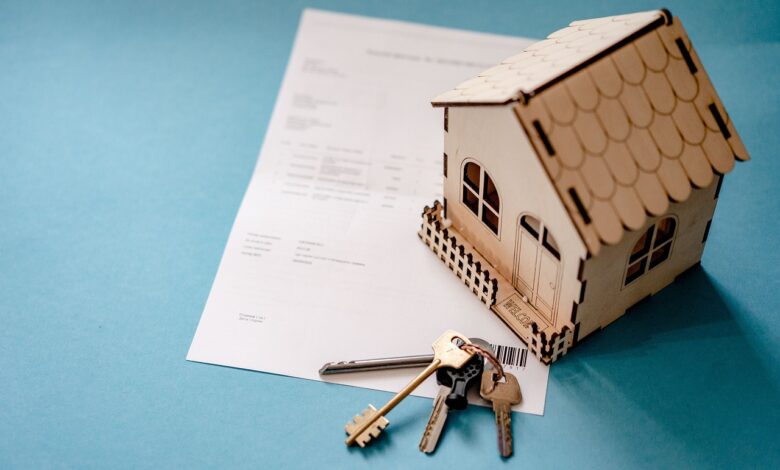The Journey to Homeownership: Strategies for Low-Income Buyers in Today’s Economy

As we transition into adulthood, many of us begin to understand the significance of the lessons our parents imparted about the importance of having a home. The concept of home transcends mere physical space; it embodies safety, stability, and a sense of belonging. For many, owning a home represents the culmination of hard work and the ultimate privilege of having a sanctuary to return to, regardless of its size. Even the smallest house or apartment can be a place of comfort and pride, especially when it’s a space you can call your own.
However, in today’s economic climate, the dream of homeownership feels increasingly elusive, particularly for low-income individuals and families. Rising property prices, stringent lending criteria, and a competitive market can make securing funding for a home seem like an insurmountable challenge. Yet, with the right financial strategies and knowledge, it is possible to navigate the complexities of home buying and make your dream a reality. While there are various mortgage types available, those specifically designed for Florida mortgages with low-income borrowers can provide significant relief.
Understanding the Importance of Homeownership
Owning a home is more than just a financial investment; it’s a cornerstone of personal and emotional stability. For many, homeownership means having a place to grow roots, create memories, and build a future. It provides a sense of security and an opportunity for personal expression.
Owning a home can also be a pathway to financial empowerment, as it often represents the largest investment individuals make in their lifetime. However, the journey to homeownership can be fraught with challenges, particularly for those with limited financial resources. Understanding the landscape of home buying and financing is essential for overcoming these hurdles.
The Current Housing Market Landscape
The housing market has undergone significant changes in recent years, shaped by various economic factors such as interest rates, inflation, and demand-supply dynamics. As of 2024, many regions are still experiencing high property prices, making it increasingly difficult for low-income buyers to enter the market.
Additionally, lenders have tightened their requirements, making it challenging to secure favorable mortgage terms. Given these challenges, it’s crucial for prospective homeowners to arm themselves with knowledge and create a thoughtful strategy to increase their chances of success. Here are several strategies to consider when looking to obtain a mortgage as a low-income buyer.
Understand Your Financial Position
Before diving into the home-buying process, take a comprehensive look at your financial situation. Assess your income, expenses, debts, and savings. This understanding will provide a clearer picture of what you can afford and help you set realistic goals. Create a budget that includes not only the cost of the mortgage but also additional expenses such as property taxes, homeowner’s insurance, maintenance costs, and utilities.
This holistic view will help you determine a comfortable price range for your future home. Your credit score plays a significant role in determining your mortgage eligibility and the interest rates you may receive. Obtain a copy of your credit report and review it for errors. If your score is low, consider taking steps to improve it by paying down debts, making timely payments, and avoiding new credit inquiries before applying for a mortgage.
Explore Financing Options
When it comes to financing, low-income buyers have several options available that can make homeownership more attainable.
Federal Housing Administration (FHA) loans are designed to assist low-income buyers by offering lower down payment requirements and more lenient credit score standards. FHA loans require as little as 3.5% down, making them an attractive option for first-time homebuyers.
If you’re considering a home in a rural area, the U.S. Department of Agriculture (USDA) offers loans with no down payment requirement for eligible low-income buyers. These loans promote homeownership in designated rural regions, making it easier for families to secure a home in less populated areas.
For veterans and active-duty service members, VA loans provide an excellent opportunity for homeownership with no down payment and favorable interest rates. These loans are backed by the Department of Veterans Affairs, making them a viable option for those who have served in the military.
Additionally, many states and local governments offer assistance programs aimed at helping low-income buyers achieve homeownership. These programs may include down payment assistance, grants, and favorable mortgage terms. Research what options are available in your area, as these resources can significantly ease the financial burden.
Save for a Down Payment
While some financing options allow for low or no down payments, saving for a down payment can still provide a financial advantage and help you secure better mortgage terms. Determine how much you need for a down payment based on the price range of homes you’re considering. A common recommendation is to aim for at least 20% of the purchase price, but many loans allow for much less. Set up a dedicated savings account for your down payment and automate transfers from your checking account. This method makes saving easier and helps you build your down payment fund over time without the temptation to dip into it. Review your monthly expenses and identify areas where you can cut back. Redirect those savings toward your down payment fund. Even small changes can add up over time and accelerate your savings.
Consider a Co-Borrower
If you’re struggling to qualify for a mortgage on your own, consider enlisting the help of a co-borrower. This could be a family member or friend who is willing to share the financial responsibility of the mortgage. A co-borrower with a stronger credit history and financial standing can enhance your chances of approval and may allow you to secure better loan terms.
Work with a Real Estate Professional
Navigating the home-buying process can be overwhelming, especially for first-time buyers. Partnering with a knowledgeable real estate agent who understands the challenges faced by low-income buyers can make a significant difference. They can help you identify properties within your budget, negotiate on your behalf, and guide you through the various stages of the buying process.
Be Prepared to Compromise
In a competitive housing market, it’s important to remain flexible and open-minded about your home search. While it’s natural to have a list of must-haves, be willing to compromise on certain features or locations. Consider homes that may need some work or are located in less trendy neighborhoods, as these properties may offer more affordable options.
Educate Yourself about the Home Buying Process
Knowledge is power, especially in the realm of homeownership. Take the time to educate yourself about the home buying process, from securing a mortgage to closing the deal. Attend workshops, read books, and utilize online resources to familiarize yourself with the terminology and steps involved. The more informed you are, the better equipped you’ll be to make sound decisions.
Conclusion: Realizing the Dream of Homeownership
The journey to homeownership can be challenging, particularly for low-income individuals and families. However, with careful planning, strategic financial decisions, and a commitment to understanding the home buying landscape, it is possible to overcome these obstacles and achieve your dream. By taking the time to assess your financial situation, exploring various financing options, saving diligently, and seeking professional guidance, you can navigate the complexities of the housing market. Remember that homeownership is not just about acquiring property; it’s about creating a space where you can thrive and build a future.
As you embark on this journey, remain patient and persistent. The road to homeownership may be filled with hurdles, but the rewards of having a place to call your own are immeasurable. With determination and the right strategies, you can turn the dream of homeownership into a reality, providing you with the stability and security that comes with having a home.



